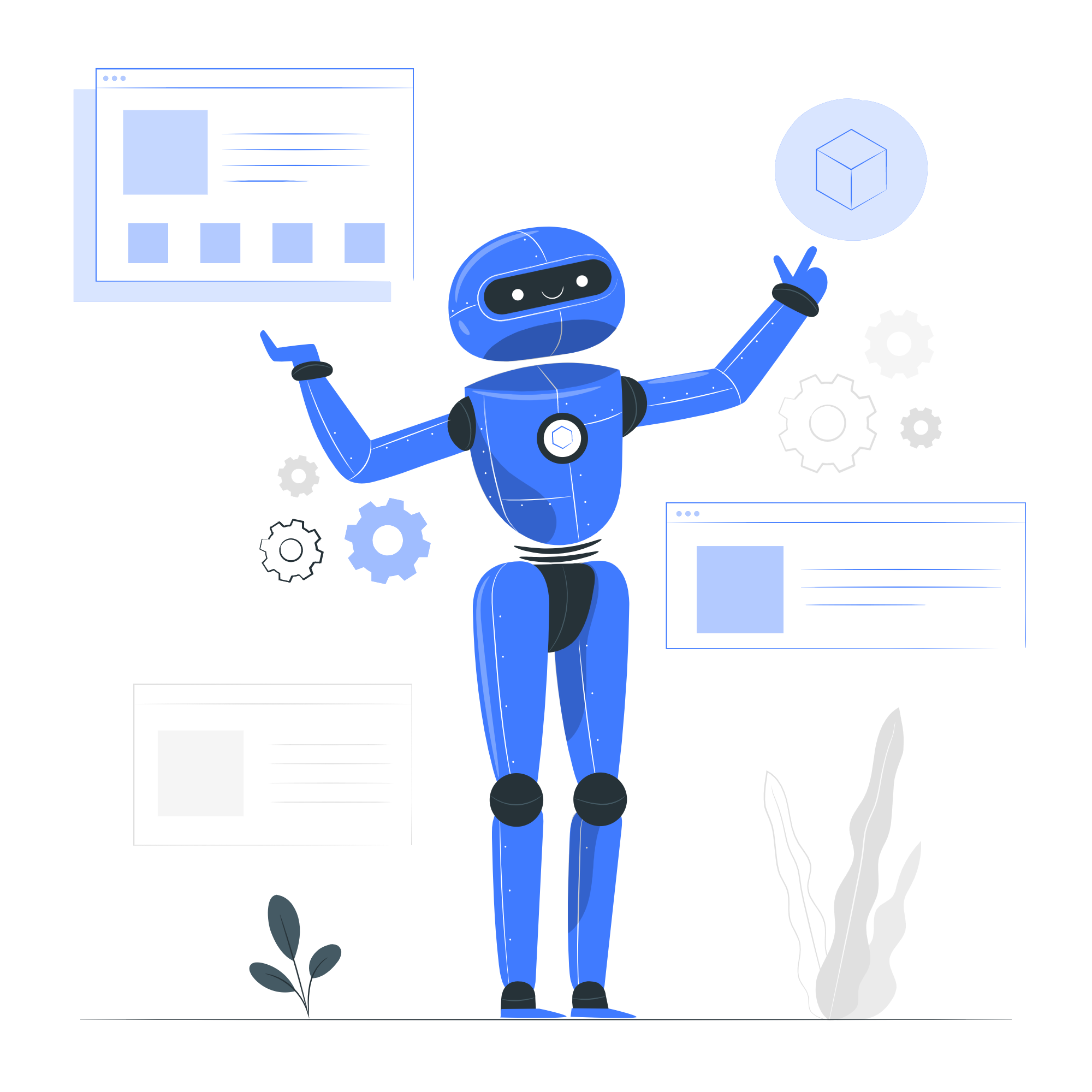
Artificial Intelligence & Machine Learning
Artificial intelligence (AI) and machine learning (ML) are rapidly transforming various industries, from healthcare and finance to marketing and manufacturing. These technologies have the potential to automate and optimize many tasks, freeing up time for humans to focus on more complex and strategic work.
AI refers to the development of computer systems that can perform tasks that typically require human intelligence, such as visual perception, speech recognition, decision-making, and language translation. Machine learning is a subset of AI that involves training computer algorithms to improve their performance on a particular task by using large amounts of data.
Sure, here's some content related to AI and machine learning: Artificial intelligence (AI) and machine learning (ML) are rapidly transforming various industries, from healthcare and finance to marketing and manufacturing. These technologies have the potential to automate and optimize many tasks, freeing up time for humans to focus on more complex and strategic work. AI refers to the development of computer systems that can perform tasks that typically require human intelligence, such as visual perception, speech recognition, decision-making, and language translation. Machine learning is a subset of AI that involves training computer algorithms to improve their performance on a particular task by using large amounts of data. One of the main benefits of AI and ML is their ability to automate repetitive and time-consuming tasks, such as data entry and analysis. This allows businesses to save time and reduce errors, while also improving the quality of their outputs.
AI and ML can also help businesses make more informed and data-driven decisions. By analyzing large amounts of data, these technologies can identify patterns and insights that humans may miss, enabling businesses to make more accurate predictions and optimize their operations.
In summary, AI and ML have the potential to transform various industries and improve efficiency and accuracy in many tasks. Businesses can leverage these technologies to make more informed decisions and optimize their operations, but they must also address challenges such as bias and data privacy to ensure responsible development and use.
